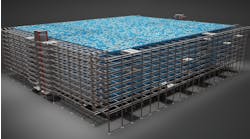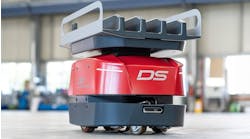A recent survey by Riverwood Solutions asked CIOs their opinions concerning the revival of hardware manufacturing. The results revealed why it takes a lot of courage to enter this brave new world of manufacturing.
More than half (54%) agreed that a company would most likely go out of business if it failed to deliver its product on time and to scale.
“Most companies are funded on their vision – not on their hardware delivery strategy,” said Brad Knight, CEO of Riverwood Solutions. “But even the most brilliant vision is useless if a company can’t deliver the goods.
The most likely cause of these delays were entrepreneurs moving into manufacturing too quickly (38%) and not properly testing the product (33%).
If you’ve been making things for decades, this is all common. After all, what good is a company if it can’t fulfill the order it promised?
You’re right. Mostly. Decades of common sense have been replaced with a few years of technological hyper-evolution. With the Internet of Things, which 76% say is the reason for this hardware revival, chatty software and devices can do thousands of processes and place new orders for your biz before you even finish your first cup of coffee. Time To Market has never been faster. In fact, 46% of CIOs surveyed believe a product can go to market in 6-12 months.
Because it’s a revival, there is a quite a bit of new blood being pumped in. It’s a positive type derived from idealistic entrepreneurs who not only have a good idea, but know how to crowd fund.
If you’re not familiar, someone can propose a business idea on a site such as Kickstarter.com, and if persuasive enough, can get people to give them money for their start up. The reward may be the product itself or shares in the company, or nothing at all. The amount of crowdfunding in 2015 is expected to reach 34 billion.
The newly created Amazon LaunchPad caters to this field, and soley sells products made by hardware startups and crowd-funded companies.
While these project leaders and entrepreneurs have aspirations of becoming the next big thing, the industry is betting against them. Half of those CIOs picked crowdfunded companies as most likely to miss their delivery time. (Imagine the meeting where a startup brain trust draws straws to see who will tell Amazon the order will be two months late.)
Bottom line: If missing delivery means going out of business as most CIOs believe, it means a lot of these new startups may shut down in about the time it takes for you to have your morning coffee.











